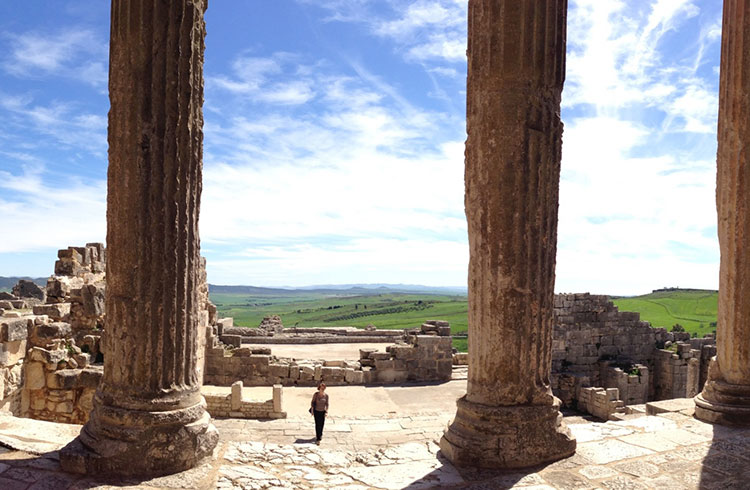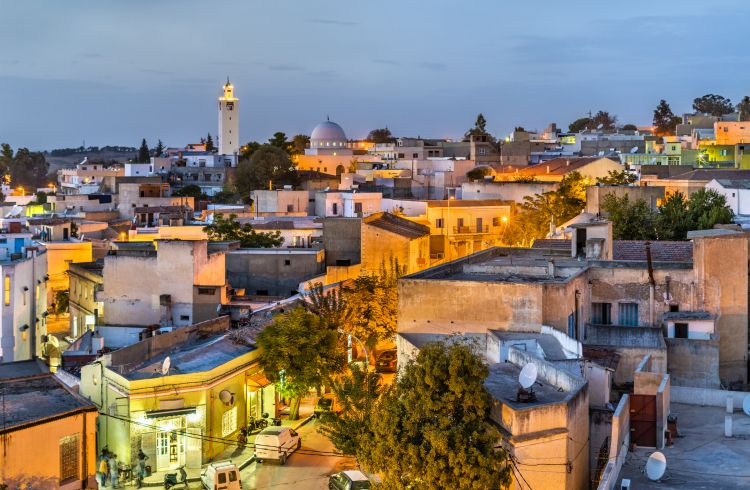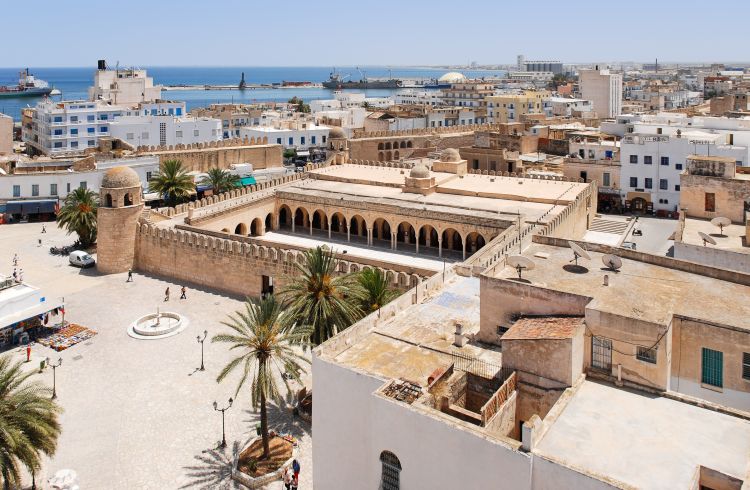Is Tunisia a Safe Place for Women Traveling Alone?
Find out how safe Tunisia is for women traveling alone, from what to wear to local customs and etiquette, here's everything solo female travelers need to know.
 Photo © Getty Images/Mehdi Majoul / EyeEm
Photo © Getty Images/Mehdi Majoul / EyeEm
Tunisia is one of the African countries where women can travel solo in relative safety, however there are still reports of occasional harassment towards travelers. Here's what you can do to stay safe.
Women in Tunisia
Tunisia is a conservative country, and gender roles of men and women will likely be different to what you may be used to back at home. However, women in Tunisia do have more opportunities than other countries in the region, as they are able to study and work. In July 2017, gender equality took another massive leap forward in the form of the Tunisian government repealing Article 227 in its criminal code. The law previously had allowed a rapist to escape prosecution if they married their victim.
The new legislation criminalizes all violence and discrimination against women, including marital rape. Police are now also required by law to refer women who have been raped to a forensic doctor at a hospital for treatment. Previously, police would not take complaints from domestic violence or rape victims seriously; now it's a criminal offense for them not to take a report and refer the victim.
While there is still much more to do, this is an important step for womens safety in Tunisia, and considered by human rights experts to be one of the best examples of taking action to protect women in the region.
LGBTQ+ laws in Tunisia
Legal challenges face people who identify as lesbian, gay, bisexual or transgender (LGBT) in Tunisia.
Same-sex relationships between both men and women are illegal. Since the Tunisian revolution in 2011, a growing number of gay men have been jailed.
Keep public displays of affection to a minimum in Tunisia, and avoid expressing your feelings or opinions on these laws to locals.
Harassment hassles
While most locals are friendly and welcoming, harassment of women travelers tends to occur due a few factors. Partly due to the fact that Tunisian men don‘t associate all that much with women before they get married, and the sexualisation of women in western media gives some Tunisian men the perception that foreign women will do just about anything if someone asks them. So, they ask.
Some Tunisian men are particularly prone to asking young foreign women to kiss them, and seem honestly confused when a woman says they aren't interested. The freedom of foreign women can also be mistaken as promiscuity.
Showing that you’re familiar with Muslim culture and etiquette can help tone down negative interactions with the locals.
Most of the time, the unwanted attention comes from local men staring at women travelers or trying to drum up a conversation. Seeing a woman traveling alone can be somewhat a novelty for local men.
A polite, firm non merci (no, thank you) or la shukran and continuing on your way tends to work.
If you happen to encounter unwanted attention, particularly of the physical kind, a good phrase to remember is "Harem alek". That‘s Arabic for "shame on you" and tends to work quite well with the shopkeepers who may touch your elbow to try to get you to shop in their store. Feign deep offence that a man who is not a family member has touched you. But usually a polite and firm non merci does the trick to avoid these unpleasant situations.
Dress conservatively in Tunisia
As Tunisia is an Islamic country, you will see the local women dressed conservatively, so when in Tunisia, do as the locals do: wear long sleeved clothing, making sure your shoulders and knees are covered. This can hopefully minimize those unwanted comments. If you feel you’re getting lots of attention, pop a scarf over your hair. It's handy to carry one even if you don't wear it if you plan to visit any important monuments or buildings such as mosques, where covering your head may be required. Sunnies are also handy, not just for blocking out the sun but to avoid unwanted eye contact.
A few handy safety tips
As you would in many other countries while traveling around, take basic precautions such as sitting in the back of taxis, sitting next to other women on public transport, avoid walking around alone at night and avoiding the dodgy hotels (these tend to be nearest souks or bars).
If you are traveling solo, another good way to feel safe and meet other people is by joining a local tour. Your accommodation will have suggestions on what to do and it can be a great way to socialize.
Related articles
Simple and flexible travel insurance
You can buy at home or while traveling, and claim online from anywhere in the world. With 150+ adventure activities covered and 24/7 emergency assistance.
Get a quote

No Comments